So you think that you want a guard dog?
Well, what is a guard dog?
Many people that I work with tell me that they want a guard dog… however before agreeing I ask them to think carefully about what is it exactly that they want their dog to do. The conversation often goes like this…!
Dog owner: How do we get the best family guard dog? We want a dog that will basically protect the place from strangers but let all our friends in.
Me: So what do you want your dog to do when a strange little old lady gets the wrong house and comes into your property or the young child wanders into your garden or a new delivery man comes to the door?
Dog owner: I thought that dogs would be able to tell who is good and who is bad?
Me: It’s not quite that simple.
Dog owner: But we want them to bark when people turn up and then be quiet when we tell them.
Me: Yes that is more appropriate – I shall show you how to achieve that.
The bad people
You see we all want dogs to protect us from “the bad people”…but really I mean how many people who come to your door do you actually want your dog to attack? Very few, if any, will be the most common answer. It really is a bit of a misconception that you want your dog to bark and scare people who come to your front door. Just having a dog on the property will deter most burglars as they are fully aware that even a relaxed dog can turn suddenly if the owner becomes startled. And that is exactly what you need to do if you want your dog to protect you – sound the alarm with your voice and your energy!
A dog will move into protective mode
If you do find yourself in a spot of trouble then you will only have to scream and shout in a panic for your dog to immediately know that something is not right. They will not need to have been trained to realise that there’s a stranger in the garden and you are not happy with the situation!
Can dogs tell good people?
Dogs are incredibly gifted at recognising emotions, however they find it hard to differentiate between a person’s fear of dogs in general and the inherent fear of a person who’s up to no good. For this reason, it’s not something that you can rely on all the time. Dogs will also often become alarmed at something different and decide not to make them feel welcome. For example if your friendly neighbour of a different ethnicity turns up, looking different, possibly wearing different clothes and carrying a strange object such as an umbrella your dog is also likely to be a little alarmed.
Your dog should really alert you to the visitors
So what is the best way for a dog to behave? Well as mentioned earlier the best situation I would aim for is that your dog alerts you by barking when visitors arrive and is then quiet when asked. They are alerting you to the person who has arrived and it is then your decision how to respond. Obviously all dogs are different, however here are some general things to focus on to achieve this goal.
- Calmer dogs: Dogs who know that they are not the pack leader will instinctively understand that you are in charge and be less controlling of the situation.
- Visitors: Asking visitors to ignore your dogs when they come in will help your dogs understand they are to be calm once the visitors arrive.
- No shouting: When people arrive it is always tempting to scream and shout at your dogs to be quiet however the calmer you are the more chance that your dog will follow suit.
- Thank You: When you get to the door acknowledge your dog with a calm word or “Thank you”.
- Train a different behavior: If you can get your dog to do anything that gets them to surrender the area around the door such as a “sit”, “away” or “in your bed” then this is a great option.
- Another room: If your dog is over excited then don’t take any chances pop them into a different room until your visitor has settled in.
- Give space: Your dog should back away from the door before you open it. Turn to face your dog and calmly ask them using your body language and energy to back away.
The more your practice calmly rewarding good behavior and directing them as to the correct way to behave when they get it wrong the more your dog will learn what it is that you want them to do. Take your time, and make sure you are focussed on your goal and know clearly in your mind what you want your dog to do!.
Looking for additional dog training resources? Find out more about how I've trained over 77,000 dogs here! Or, if you have a puppy, check out my Puppy Coach training program!
Be safe out there. I'd love to hear how your dogs guard your family…
Cheers,
 .
.


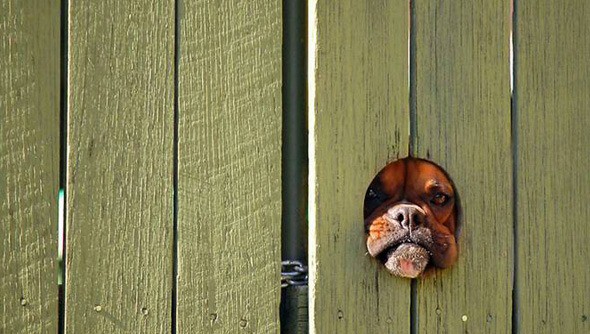
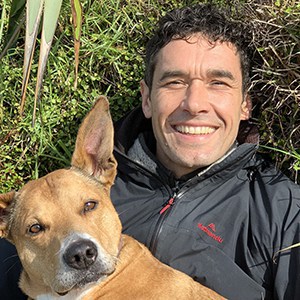

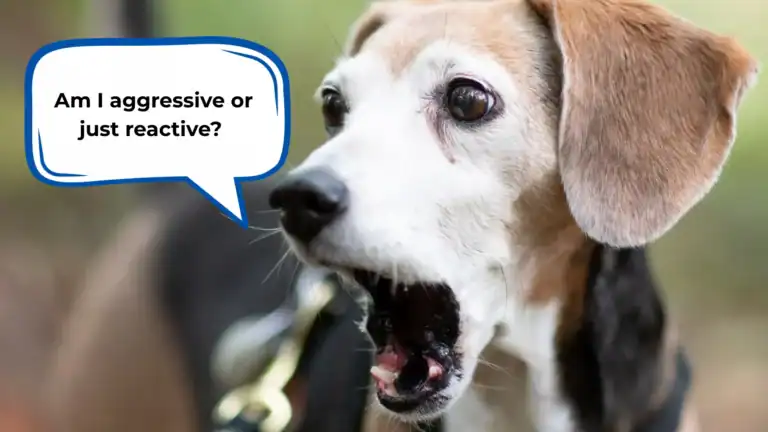
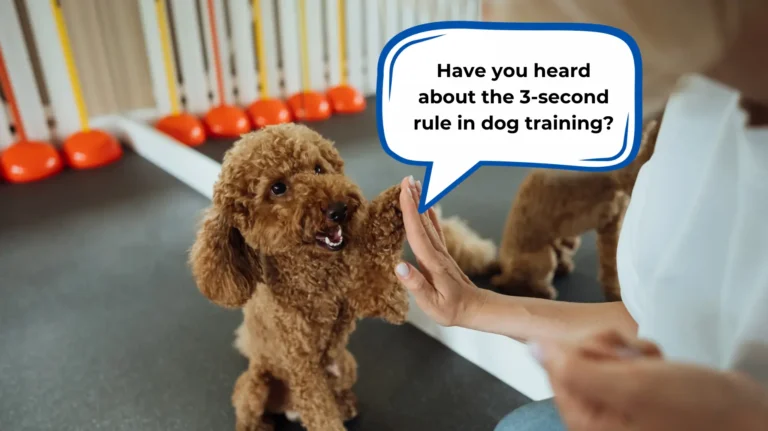
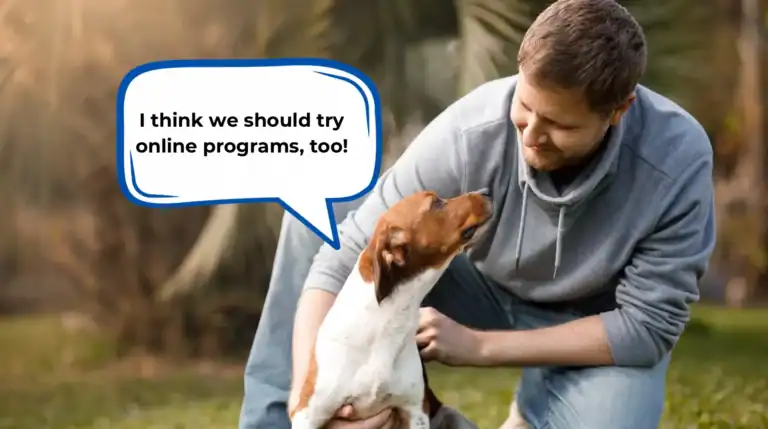
6 Responses
Good information! thanks for sharing
Thanks! Doggy Dan
Good Tips. Will follow these next time people come around. And hopefully my dog will learn to be more calm when people arrive.
Thanks, glad you found my advice helpful. Just remember to remain calm yourself when responding to your dog, it goes a long way in calming their behaviour. It may take a few reminders but with consistency you will notice a change. All the best, Doggy Dan
Very insightful, the perfect guard dog let’s YOU know when someone coming onto the property, it’s up to you the appropriate action. Great post Dan.